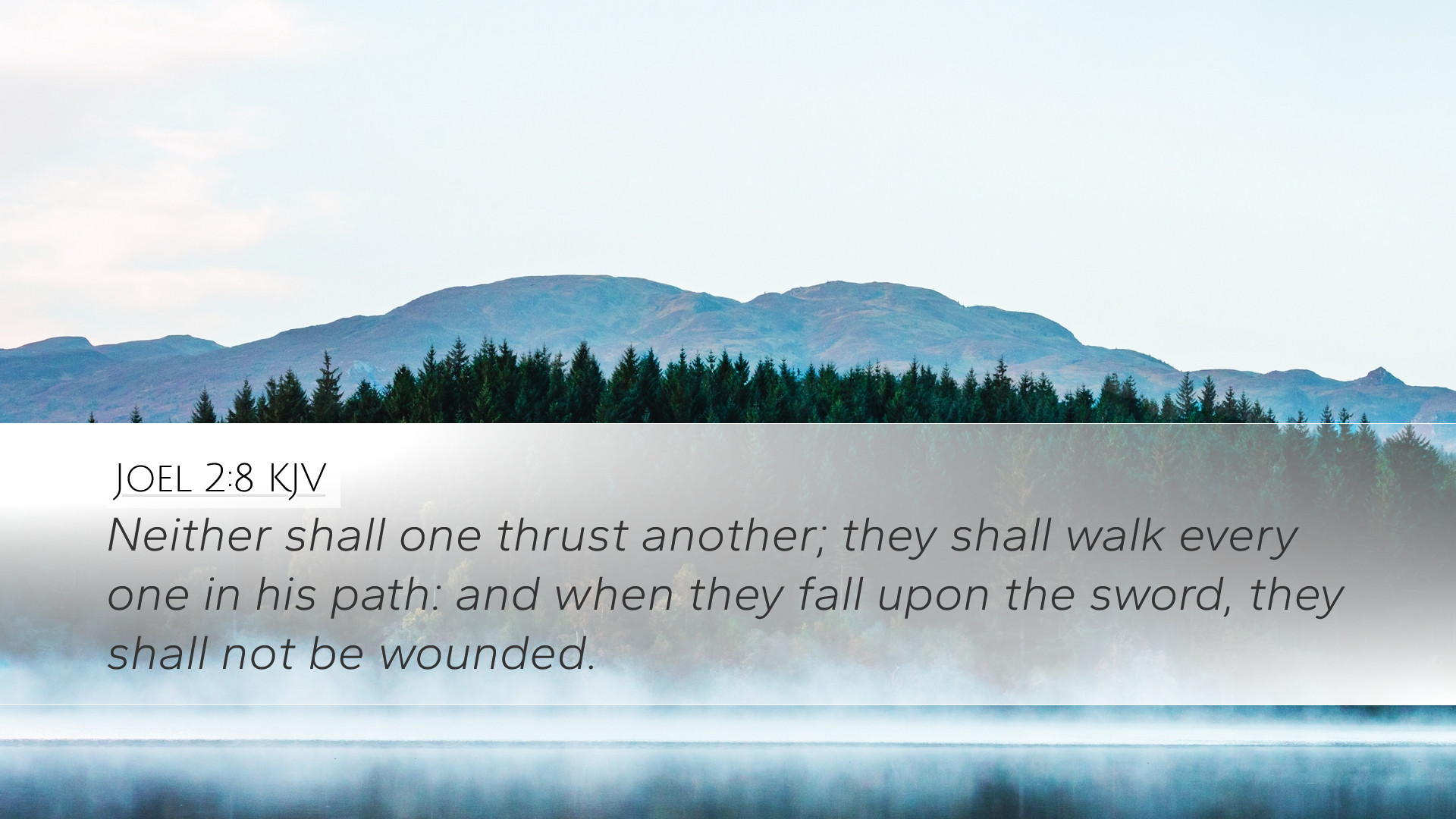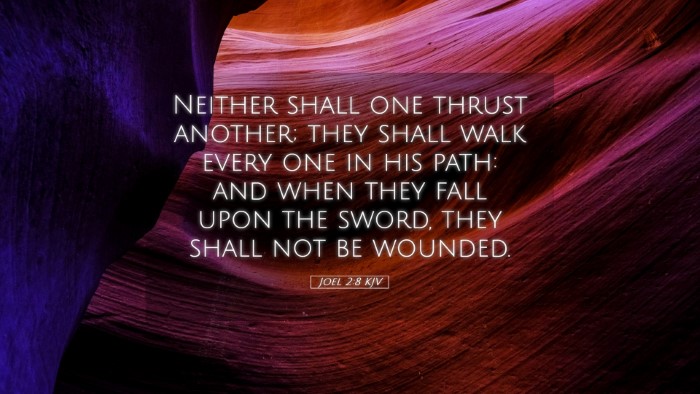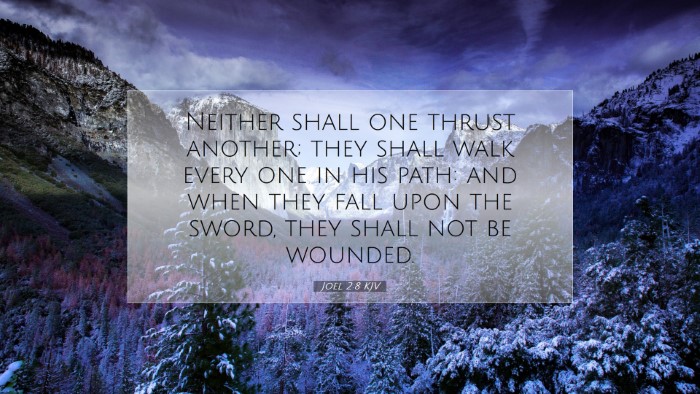Commentary on Joel 2:8
Verse Context: Joel 2:8 states, "Neither shall one thrust another; they shall walk every one in his path: and when they fall upon the sword, they shall not be wounded." This verse fits into the broader context of Joel's prophecy concerning the day of the Lord, a time of great judgment and calamity, characterized by the invading locusts that symbolize divine judgment against Israel.
Exegesis of the Verse
Joel utilizes vivid imagery to communicate the discipline and fury of God’s judgment. His vision of the locust plague serves as a warning and a call to repentance. The line "Neither shall one thrust another" highlights an essential aspect of this prophecy—despite the chaos, there is a structure to the divine judgment. The locusts, though destructive, exhibit a particular order and purpose.
Insights from Matthew Henry
Matthew Henry emphasizes the unity of the judgment. He notes that during this time, the locusts do not fight among themselves; rather, they follow their appointed paths, demonstrating God’s sovereignty over creation. This reminds the reader that even amidst chaos, God is in control. Henry also suggests that the imagery of not being wounded when falling on the sword depicts a divine protection and purpose, showing that those within God’s will are shielded from destruction.
Insights from Albert Barnes
Albert Barnes interprets this verse by highlighting the extraordinary nature of the locusts’ behavior. He points out that generally, one creature will struggle for survival in times of danger, but these locusts exhibit a unique form of obedience to God’s command. They do not obstruct one another as they pursue their course of destruction. Barnes draws a parallel to how God's people should also work in unity and should operate within the order God prescribes for them, especially in times of trial. He underscores the aspect of divine judgment being carried out in a structured manner, noting that it reflects God's meticulous planning and execution of justice.
Insights from Adam Clarke
Adam Clarke provides a unique linguistical analysis of the original Hebrew text, offering insights into the specific words used by Joel. He indicates that the expression involves significant nuances in translation, suggesting that the phrase implies not merely a lack of aggression among the locusts, but also an almost supernatural ability to inflict destruction without harm to themselves. Clarke's commentary illustrates the certainty of God's judgment while also expressing hope; despite the calamity, those who repent can find refuge in God's mercy.
Theological Implications
This verse encapsulates significant theological themes relevant to pastors and scholars today. It serves as a reminder of the omnipotent nature of God who orchestrates events to fulfill His divine purposes. The orderly progression of the locusts stands in stark contrast to human chaos and sinfulness, prompting reflection on how believers might better align with God’s commands. The imagery conveys that despite perceived devastation, there is an opportunity for restoration, echoing the larger theme of hope that permeates the prophetic books.
Unity in Diversity
One of the critical lessons from Joel 2:8 is that unity can exist even amidst adversity. Each locust follows its path without straying, which illustrates the beauty of divine order amidst diversity. This is a significant principle for the church and the community of believers—working towards a common goal under God’s sovereign direction while allowing individual functions and gifts to flourish.
Divine Protection
The message that the locusts "shall not be wounded" when they fall upon the sword can be interpreted as a reflection of God’s protective hand. In a time of spiritual warfare, believers can find solace knowing that God enables resilience against external threats. This assurance is vital for spiritual leaders, guiding them to instill confidence within their congregations during turbulent times.
Conclusion
Joel 2:8 offers profound insights into God's judgment and His ability to instill order within chaos. The various commentaries shed light on the text's meaning and implications for personal faith and communal practice. Pastors, students, and theologians are encouraged to reflect on these concepts, particularly the importance of unity, divine purpose, and God’s protective nature, which resonates deeply both in the days of Joel and in contemporary Christian life.


